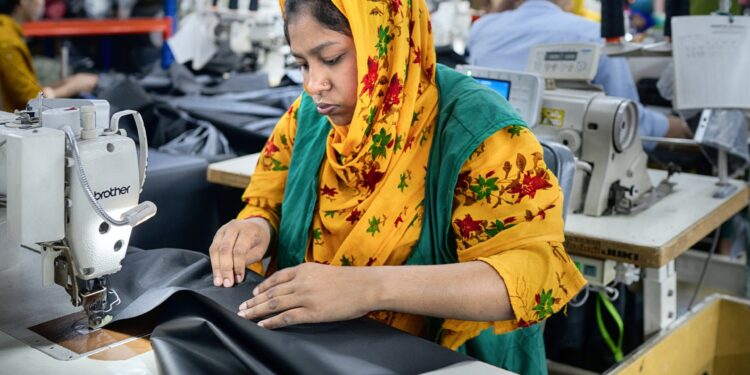Bangladesh’s vital garment industry faces a major challenge in restoring global confidence after months of political turmoil that caused major disruptions to production and supply chains as the government of former Prime Minister Sheikh Hasina fell after weeks of popular protests.
An interim government, led by Nobel laureate Muhammad Yunus, has taken on the difficult task of restoring stability to the country and revitalizing one of the most important sectors of the economy.
Importance of Garment Industry in Bangladesh
The garment industry accounts for about 85% of Bangladesh’s total exports, worth $55 billion a year, according to Bloomberg.
The Bangladeshi economy is heavily dependent on this industry, with more than 3,500 garment factories catering to major global retailers.
Recent political unrest has threatened the industry, prompting some global companies to shift part of their orders to other countries such as Cambodia, Indonesia and Turkey.
Restore confidence
With factories reopening and shipping and transportation operations resuming, Bangladesh’s garment industry is showing remarkable resilience, with truck and rail traffic returning, and port and airport operations resuming, contributing to the stability of supply chains, according to the British newspaper Metro.
But challenges remain, as factories continue to face production delays and seek to compensate by extending working hours and using air freight to deliver goods on time.
Government efforts
Mohammed Yunus, who was appointed head of the interim government, pledged to work to restore order and support the garment industry as a priority.
In his speech, Yunus stressed his country’s continued support for Rohingya refugees and maintaining Bangladesh’s pivotal role in the global garment supply chain.
“We will not tolerate any attempt to disrupt the global supply chain in which we play a key role,” Younes said.
In an effort to shore up stability, the interim government has created a new task force to protect industrial facilities and deployed the army to guard factories, in a move aimed at rebuilding the confidence of international buyers.
Yunus stressed the importance of reforming key institutions such as the bureaucracy and judiciary to fight corruption and make Bangladesh’s export sectors more competitive in the long run.
Challenges and cautious confidence
While there are some signs of stabilization, international buyers remain hesitant to fully return to relying on suppliers in Bangladesh.
Winter deliveries of clothing and footwear to Europe and North America have been delayed due to the disruptions, with goods still stuck at ports and airports. Despite efforts, some global retailers have turned to suppliers in other countries to ensure their orders are fulfilled on time.
However, Bangladesh benefits from abundant and low-cost labor, which is difficult for competitors to match.
As factories gradually return to work and production increases, some of the world’s largest retailers welcomed the steps taken by the interim government to restore stability, expressing cautious optimism about the future.



